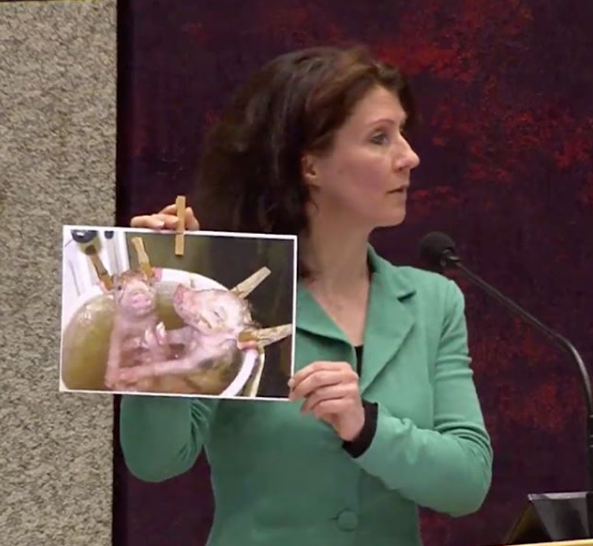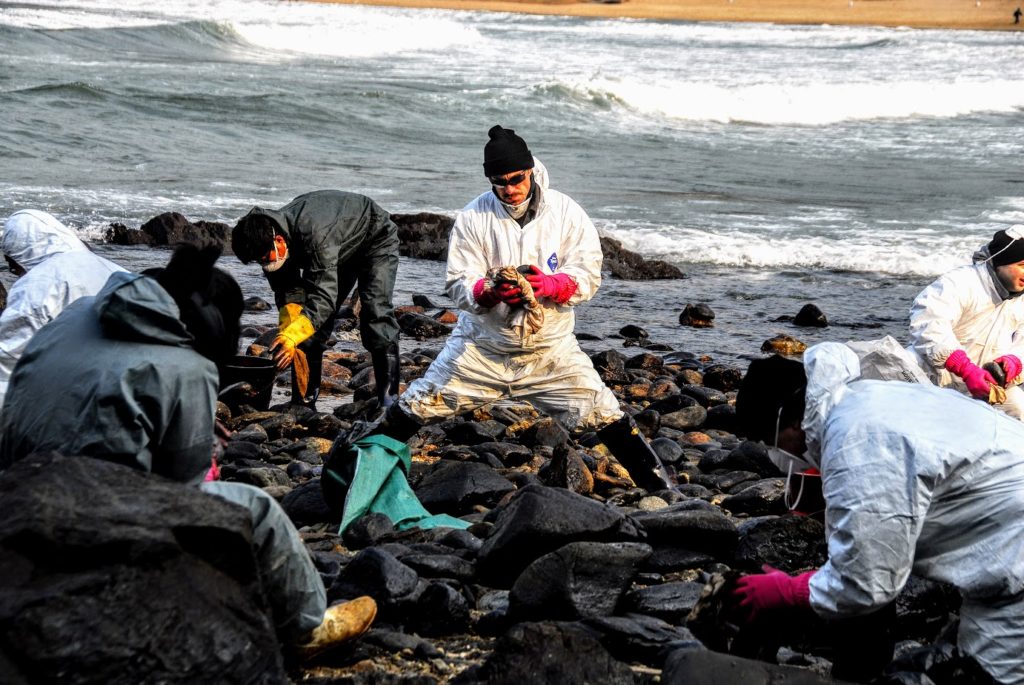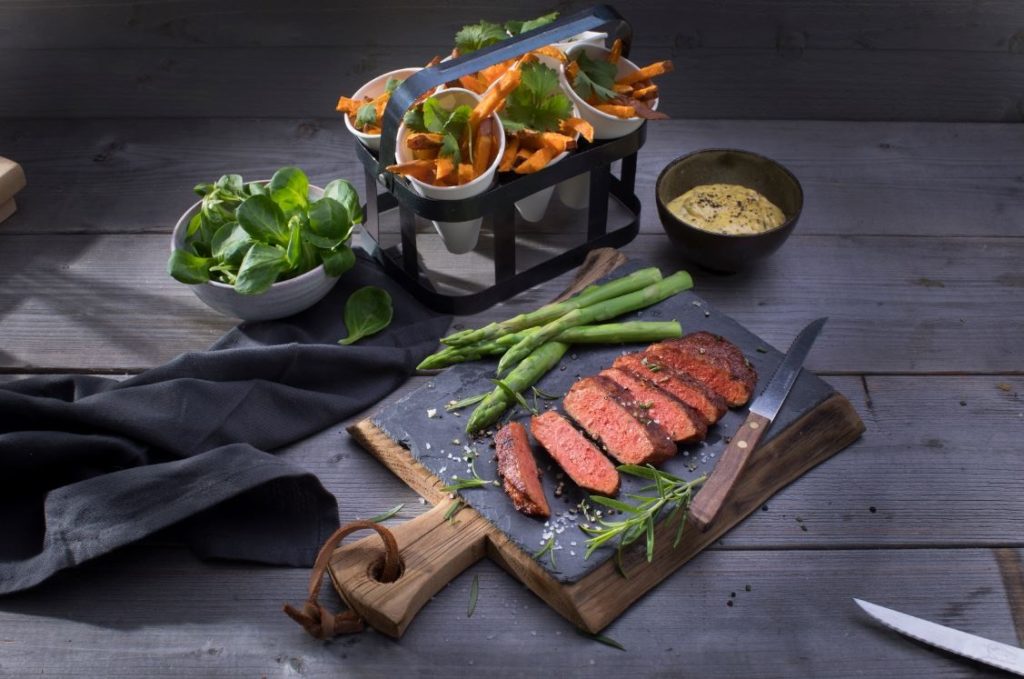Worldlog Marianne Thieme 22 maggio 2018
Last week all MPs had the week off due to Spring recess. However, immediately following the recess we raised some important issues in the Lower House, including the necessity to stop the growth of air transport, and to finally effectively address the animal abuse in pig farms in the Netherlands. It is heart-breaking how intelligent creatures like pigs are treated in a developed land such as the Netherlands: pigs in the industry have been bred radically on the largest possible number of piglets when a sow gives birth. As a result, almost 5 million piglets a year are born too weak and consequently die of hypothermia or diarrhoea. These piglets are often beaten to death against a wall or hung by the ears in a bucket of warm water to prevent hypothermia. The fact that such practices are seen by the industry as a solution clearly illustrates the moral bankruptcy of conventional livestock farming.

Party for the Animals MP Esther Ouwehand addressing pig abuse in the Lower House
Last week has also shown a paradigm shift which we have been advocating for years. Statistics Netherlands (CBS), a major Dutch scientific institution, published the so-called ‘Broad Prosperity Monitor’ last week. In order to measure prosperity, this monitor looks beyond the gross domestic product (GDP) and takes into account a number of other indicators such as the environment, public health, education, employment, safety, confidence and inequality. Until now, national prosperity was measured mainly in terms of GDP (economic growth) and changes in GDP were seen as the main factor on which policy was based. However, prosperity is more than just economic growth. Moreover, the monitor does not only look at the level of broad prosperity in the here and now, but it also takes into account the extent to which this striving for prosperity may put a pressure on future generations in the Netherlands or on other countries.
The results of this unique monitor are shocking: the Netherlands is officially the dirtiest country in Europe. Of all European countries our country has come last, mainly because of our vast livestock sector and large amounts of manure. In terms of money we are richer than ever before, but from an ecological perspective we have never been so poor. Our wealth, which is at the expense of future generations and other residents of our planet, is not wealth at all, but cheap robbery.

Clean-up after oil spill incident
The monitor’s approach is consistent with the planet-wide vision of the Party for the Animals and all its sister parties worldwide. The monitor reveals the consequences of our actions and shows that the current way of treating each other, our surroundings, animals and the environment is no longer acceptable. We only hope that the next edition of the monitor will consider the interests of all inhabitants of the planet, not just those of mankind.
Our European group also had some good news: the EU finally voted in favour of a, possibly partial, ban on neonicotinoids which are used as an agricultural toxin – a major step for bees and the entire world! Moreover, the European Parliament has called for a global ban on animal testing in the cosmetics sector. Already in 2004, the EU banned animal testing for cosmetic products, but nevertheless, cosmetics involving animal suffering are still being sold today.

A great alternative: the world’s first plant-based steak
Unfortunately, there are also some disturbing developments going on in Europe and beyond. The EU has finally become aware of the thing we warned them about from the beginning: the association agreement with Ukraine has flooded the EU market with Ukrainian broiler chickens. These chickens are kept in appalling conditions and the factory farms in which they are kept are often financed by the Netherlands. Furthermore, it has turned out that the EU finances campaigns that stimulate the low rabbit meat consumption. Unacceptable. We need to move on from this polluting system of human and animal suffering and work together in order to allow more sustainable and plant-based agriculture.
So, to end on a positive note: the Dutch company Vivera has launched the world’s first steak without animal-suffering! 100% plant-based and free of palm oil. Read more about it here.
Until next time,
Marianne
Fino alla scorsa settimana c’era la pausa parlamentare di maggio e noi come parlamentari eravamo liberi. Subito dopo la pausa, abbiamo sollevato questioni importanti nel parlamento, tra le quali la necessità di fermare la crescita del traffico aereo e di affrontare finalmente gli abusi nei porcili olandesi. È terribile vedere come trattiamo le creature intelligenti come i maiali in un paese sviluppato come i Paesi Bassi: il settore ha continuato dei incroci nei allevamenti per ottenere sempre più nascite nello stesso parto di una scrofa. Di conseguenza, quasi 5 milioni di maialini all’anno sono troppo deboli alla nascita e muoiono di ipotermia o diarrea. Questi maialini vengono regolarmente picchiati a morte sul muro dall’agricoltore o appese, con delle mollette alle orecchie, in un secchio di acqua calda contro l’ipotermia. Il fatto che il settore consideri questo come la soluzione è troppo indicativo per il fallimento morale dell’allevamento convenzionale.

Esther Ouwehand, onorevole per il Partito per gli Animali, spiega nel parlamento gli abusi dell’industria suina.
La scorsa settimana abbiamo visto anche un cambio di paradigma che sosteniamo da anni. L’ISTAT olandese (Centraal Bureau voor de Statistiek (CBS)), come importante istituzione scientifica, ha pubblicato la scorsa settimana la cosiddetta “Monitoraggio Ampio Benessere”. Questo monitor non misura il nostro benessere esclusivamente sulla base del prodotto interno lordo (PIL), ma esamina anche indicatori come l’ambiente, la salute, l’istruzione, il lavoro, la sicurezza, la fiducia e la disuguaglianza. Fino ad ora, soprattutto la variazione del PIL (crescita economica) è stata misurata e considerata il fattore più importante in cui la politica deve essere orientata. Ma benessere è più della sola crescita economica. Inoltre, il monitor non guarda solo al livello della prosperità ampia “qui e ora”, ma anche in che misura questa ambizione di benessere potrebbe condizionare le generazioni future nei Paesi Bassi o in altri paesi.
I risultati di questo monitor unico sono scioccante: I Paesi Bassi sono ufficialmente proclamati il ragazzino più sporco della classe. Il nostro paese è finito all’ultimo posto in Europa, soprattutto a causa dell’enorme numero di bestiame e della grande quantità di letame. Siamo letteralmente ricco sfondato ma maleodorante: più ricchi che mai espressi in denaro, ma allo stesso tempo non siamo mai stati così poveri guardando alla prospettiva ecologica. La nostra ricchezza che è a discapito delle generazioni successive, a scapito degli altri abitanti del pianeta non è la ricchezza, ma una rapina superficiale.

Pulizia dopo disastro petrolifero
L’approccio del monitor è molto allineato con la visione di ampiezza planetaria del Partito per gli Animali e di tutte le nostre consorelle in tutto il mondo. Il monitor mostra le conseguenze delle nostre azioni e mostra che il modo attuale di trattare con il nostro ambiente, gli uni con gli altri, gli animali e l’ambiente non è più accettabile. Speriamo solo che nella prossima edizione del monitor, gli interessi di tutti gli abitanti del pianeta saranno presi in considerazione, e non esclusivamente con quelli dell’uomo.
Anche dal nostro gruppo nel Parlamento europeo ci sono state buone notizie: l’UE ha finalmente votato per un divieto (parziale) di neonicotinoidi, usati come pesticidi. Questo è un passo importante per le api e l’intero pianeta! Inoltre, il Parlamento europeo ha chiesto un divieto mondiale di test sugli animali per cosmetici. Nel 2004 l’UE ha già vietato i test sugli animali per prodotti cosmetici, ma nei negozi ci sono ancora cosmetici per i quali animali hanno sofferto.

Anche questo è possibile: la prima bistecca vegetale al mondo
Purtroppo, ci sono ancora sviluppi preoccupanti sia in Europa come altrove. L’UE solo ora nota ciò per cui noi abbiamo immediatamente messo in guardia: l’accordo di associazione con l’Ucraina allaga il mercato dell’UE con polli proveniente da allevamenti intensivi dall’Ucraina. Questi polli sono tenuti in condizioni terribili e le mega-stalle in cui sono tenuti sono spesso finanziate dai Paesi Bassi. È emerso inoltre che l’UE sta finanziando campagne che tentano di stimolare il basso consumo di carne di coniglio. Inaccettabile. Dobbiamo finire questo sistema inquinante, pieno di sofferenza umana e animale, e collaborare per rendere possibile un’agricoltura più sostenibile e vegetale.
E per concludere positivamente con questo pensiero: l’azienda olandese Vivera ha il mondo lanciata la prima bistecca senza sofferenza animale! 100% vegetale e senza olio di palma. Qui ne puoi leggere di più.
Alla prossima volta,
Marianne